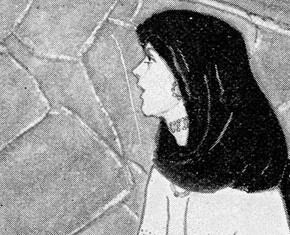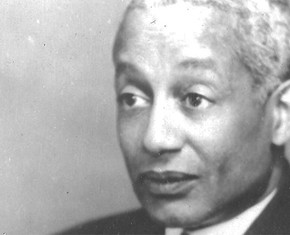The views expressed in our content reflect individual perspectives and do not represent the authoritative views of the Baha'i Faith.
Baha’u’llah—the prophet and founder of the Baha’i Faith—directly addressed the world’s rulers.
In the tablets Baha’u’llah wrote to the kings and rulers of the world from his imprisonment and exile in Adrianople, Baha’u’llah challenged the planet’s most powerful government and religious leaders to use their power to help their own people rather than for conquest and oppression. He wrote that the purpose of their power was to bring about justice. If they could not use their power for justice, then Baha’u’llah deemed their power empty and useless:
God hath committed into your hands the reins of the government of the people, that ye may rule with justice over them, safeguard the rights of the downtrodden, and punish wrong-doers. If ye stay not the hand of the oppressor, if ye fail to safeguard the rights of the downtrodden, what right have ye then to vaunt yourselves among men? – Baha’u’llah, The Summons of the Lord of Hosts, p. 190.
He also questioned the justice of excessive taxation:
O Kings of the earth! We see you increasing every year your expenditures, and laying the burden thereof on your subjects. This, verily, is wholly and grossly unjust. Fear the sighs and tears of this Wronged One, and lay not excessive burdens on your peoples. Do not rob them to rear palaces for yourselves; nay rather choose for them that which ye choose for yourselves. – Ibid., p. 91.
Baha’u’llah decried the negative effects of excessive military spending, and rather than increasing their military forces to protect themselves or wage imperialistic wars, told the world’s rulers to settle their differences peacefully:
Compose your differences, and reduce your armaments, that the burden of your expenditures may be lightened, and that your minds and hearts may be tranquillized. Heal the dissensions that divide you, and ye will no longer be in need of any armaments except what the protection of your cities and territories demandeth. – Ibid., p. 186.
These unprecedented, historic tablets—to the Russian Czar, the Persian Shah, the Ottoman Sultan, the American presidents, the European kings and Prime Ministers, the Pope and the Islamic clerical establishment and other national and religious authorities—represented a clear call to all the world’s leaders to disarm and unify.
Unprecedented in human history, Baha’u’llah’s Tablets to the Kings and Rulers both predicted and set the world stage for a massive, wholesale transfer of power during the 19th and 20th centuries, from autocratic clerics and monarchs to democratic governments ruled by the consent of their citizens.
The Guardian of the Baha’i Faith, Shoghi Effendi, characterized Baha’u’llah’s Tablets in these lofty terms:
The magnitude and diversity of the theme, the cogency of the argument, the sublimity and audacity of the language, arrest our attention and astound our minds. Emperors, kings and princes, chancellors and ministers, the Pope himself, priests, monks and philosophers, the exponents of learning, parliamentarians and deputies, the rich ones of the earth, the followers of all religions, and the people of Baha—all are brought within the purview of the Author of these Messages, and receive, each according to their merits, the counsels and admonitions they deserve. No less amazing is the diversity of the subjects touched upon in these Tablets. The transcendent majesty and unity of an unknowable and unapproachable God is extolled, and the oneness of His Messengers proclaimed and emphasized. The uniqueness, the universality and potentialities of the Baha’i Faith are stressed, and the purpose and character of the Babi Revelation unfolded. – The Promised Day is Come, pp. 44-45.
Despite Baha’u’llah’s clear warnings and admonitions, all the monarchs ignored Baha’u’llah’s messages, except Queen Victoria, who reportedly said, “If this is of God, it will endure; if not, it can do no harm.”
For the first time ever, a prophet of God had addressed the rulers of the world.
















Comments
Sign in or create an account
Continue with Googleor